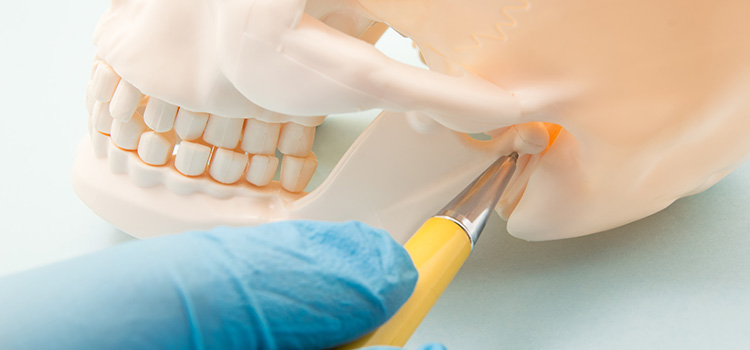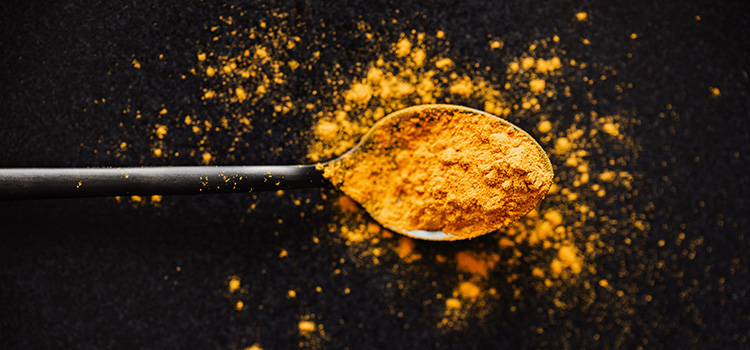Vitamins And Supplements To Treat TMJ
18th Jul 2020

Nutritional deficiencies rob your body of the building blocks it needs to truly thrive. Using vitamins and supplements to treat TMJ disorder is an easy way to correct troublesome deficits.
Keep reading to learn more about TMJ disorders and the vitamins and supplements that might help. We'll also discuss what you should consider before taking them and other treatments that might offer relief.

The Trouble With TMJ
Even if your jaw functions perfectly, saying “temporomandibular joint” is quite the mouthful. That's why the hinge joints that connect either side of the jaw bone to the skull are often referred to as the TMJs.
When problems arise with these joints, the results can include an aching, grinding pain in the jaw. You may experience a clicking sound when you move your jaw, earaches, facial discomfort, chewing troubles, and difficulty opening or closing the mouth fully. Temporomandibular disorder, or TMD, can also trigger painful TMJ muscle spasms in the jaw muscles, and as a result you may wake up in the morning with jaw pain one side.
Doctors point to several possible culprits for TMJ malfunction. Genetics and anatomy can leave you more vulnerable to this issue. Medical conditions like arthritis, connective tissue disorders, or jaw injury may also trigger issues.
A link to bruxism is also possible, as many people who struggle with TMD also battle habitual teeth grinding and jaw clenching. However, this isn't a clear-cut case of cause and effect. Many bruxism sufferers will never develop TMD.

Deciding If Supplements Are Right for You
No matter how healthy you think your diet is, a hidden vitamin deficiency is a possibility. After all, it's not just what you eat. Your behaviors and your genetics also impact how your body processes what you consume.
Vitamin deficiencies are often diagnosed via a mix of blood work and clinical evaluation. If you're concerned that vitamin deficiencies might be making your TMJ (Temporomandibular Joint Dysfunction) disorder worse, talk to your doctor.
If you don't have a clear deficiency, vitamins and supplements may still help treat your TMD symptoms. However, you'll want to keep a few cautions in mind. For starters, stay within the guidelines provided to avoid toxicity issues. Also, choose vitamins and supplements from a reputable supplier so you know the product is safe and high-quality.
Be sure to talk with a health professional before starting a new vitamin or supplement. Sometimes, these substances can interfere with certain medications or cause problems for people with specific health conditions. Seeking the input of your doctor, dentist, or pharmacist can minimize the risk of a negative interaction or effect.
Related Articles:

Vitamins and Supplements to Treat TMJ Disorder
Whatever the condition's cause, there is reason to believe that certain vitamins and supplements can help people dealing with TMJ disorders. Consider this: A 2008 study explored nutritional deficiencies in patients with complex TMJ issues. It found that every participant was lacking in at least one of the 10 substances under review.
If you're interested in using vitamins and dietary supplements to treat TMJ, you have several choices. Some help by supporting healing and wellness. Others soothe inflammation or TMJ pain.
Vitamin C
Often touted as a tool for keeping colds away, Vitamin C is a powerful antioxidant. It is essential for collagen production, and healthy collagen is a must for healthy, pain-free joints. As a bonus, it also supports immune function, prevents cell damage, and reduces capillary fragility.
This water-soluble vitamin can be found in a wide array of fruits and vegetables as well as in supplement form. Vitamin C has a low risk of toxicity, so it's generally a safe option.

Vitamin D
The sunshine vitamin, vitamin D is naturally produced by the body when the skin is exposed to sunlight. It's also found in certain foods and sold in supplements. Despite this availability, many people are vitamin D deficient. That's unfortunate because the body uses this fat-soluble vitamin for numerous purposes. It's especially important for bone health and muscle function, which are areas of concern for TMJ sufferers.
Taking vitamin D can support healing, strengthen bones, improve muscle function, and decrease pain. It may also improve your mood. However, too much vitamin D has been linked to heart arrhythmia, kidney issues, and anorexia.
Calcium
While the bulk of the body's calcium is dedicated to bone health, this mineral also plays a role in nerve signaling and muscle function. This means having adequate calcium can help relax tense jaw muscles. Calcium is found naturally in many foods such as milk and cheese and can be artificially added to others. It's also in certain over-the-counter medications and available as a supplement.
The body does a good job of managing calcium levels, but having excessive amounts of calcium is linked to kidney issues, kidney stones, and tissue calcification. Too much calcium can also throw off the balance of important vitamins and minerals in the body.
Magnesium
According to the National Institutes of Health, magnesium is a cofactor in more than 300 enzyme systems that control biochemical reactions in the body. It's involved in muscle and nerve function, the structural development of bone, blood glucose control, and energy production.
This multitasking mineral is known to reduce inflammation, relax tense muscles, and prevent painful spasms, so it's a smart choice for TMD sufferers. Magnesium is generally safe but diarrhea can be a red flag that you're overdoing it.
B-Vitamins
There are several B-vitamins. They often occur together in foods, and a good B-complex vitamin will typically include vitamins B1, B2, B3, B5, B6, B7, B9, B12.
These vitamins play roles in immune function and tissue repair. They are also crucial cogs in the mechanisms that turn food into energy, and a lack in B-vitamins can lead to fatigue and stress. Since stress can increase behaviors like teeth grinding and jaw clenching, getting sufficient B-vitamins is important for anyone battling the symptoms of TMJ issues.

Turmeric
Turmeric is a spice with a vivid orange hue, a distinctive flavor, and anti-inflammatory powers. For those with TMJ disorders, it can soothe jaw pain by reducing swelling and inflammation.
While turmeric can stain, it's normally not associated with negative side effects.
Glucosamine
Glucosamine is a natural compound found in cartilage. When taken as a supplement, it fuels the repair of cartilage and improves joint lubrication and range of motion. As a result, it reduces joint pain and silences the clicking that can accompany troubled joints.
Joint pain sufferers report that glucosamine reduces pain better than ibuprofen. Glucosamine is generally considered safe, but it can cause some minor digestive issues.
Chondroitin
Chondroitin is a complex sugar found in connective tissues. As a supplement, it prevents the breakdown of cartilage and speeds the repair of damaged tissue. It also seems to have anti-inflammatory and pain relief powers.
As long as it's taken as directed, chondroitin is considered safe. However, people with bleeding disorders should avoid it because it can increase bleeding risks.
Methylsulfonylmethane
Methylsulfonylmethane, or MSM, is a compound that's found naturally in foods and in supplements. It serves as a useful source of sulfur. Thanks to its anti-inflammatory properties, it's used to treat arthritis and other joint disorders, including TMDs. MSM can also help ease pain and may speed post-exercise recovery.
There aren't many large-scale studies of this compound, but the Food and Drug Administration generally considers it safe when used as directed. However, people taking blood thinners should avoid MSM.
Related Articles:
Other TMJ Disorder Treatments to Consider
If vitamins and supplements don’t cut it, you might wonder what else you can try. There are several options available, and TMJ disorders generally respond well to noninvasive treatments like these ones. Treatments to consider include the following:
Night Guards:
Oral appliances worn during sleep, night guards reduce the strain of teeth grinding and jaw clenching. They protect teeth and may help the jaw muscles relax. User-friendly and drug-free, they're a handy tool for people struggling with jaw pain.
Medications:
Muscle relaxants, nonsteroidal anti-inflammatories, and pain relievers are often recommended to reduce muscle tension, swelling, and discomfort. Your dentist may suggest an over-the-counter product or a prescription medication.
Homeopathic Remedies:
Using heat or ice can ease pain, reduce tension, and decrease inflammation. Meditation, exercise, or deep breathing can soothe TMD troubles by lowering your stress levels.
Related Articles:
Surgery:
Surgical interventions are rarely needed. They're typically only used when conservative treatments have failed.
Finding Relief From TMJ Symptoms
TMJ disorder treatments can bring welcome relief, and many work well with vitamins. However, it's vital that you discuss any treatment with your health care professional. They can help you weigh the pros and cons and alert you to any potential dangers.

- Most Popular
- Hard Outside, Soft Inside
- 2MM Thick
- Moderate / Heavy

- Most Durable
- Hard Materials
- 1.5MM Thick
- Heavy / Severe

- For Day Time Use
- Thin, Barely Visible
- 1MM Thick
- Light / Moderate

- For Clenching
- Flexible & Soft
- 1.5MM Thick
- Light / Moderate

